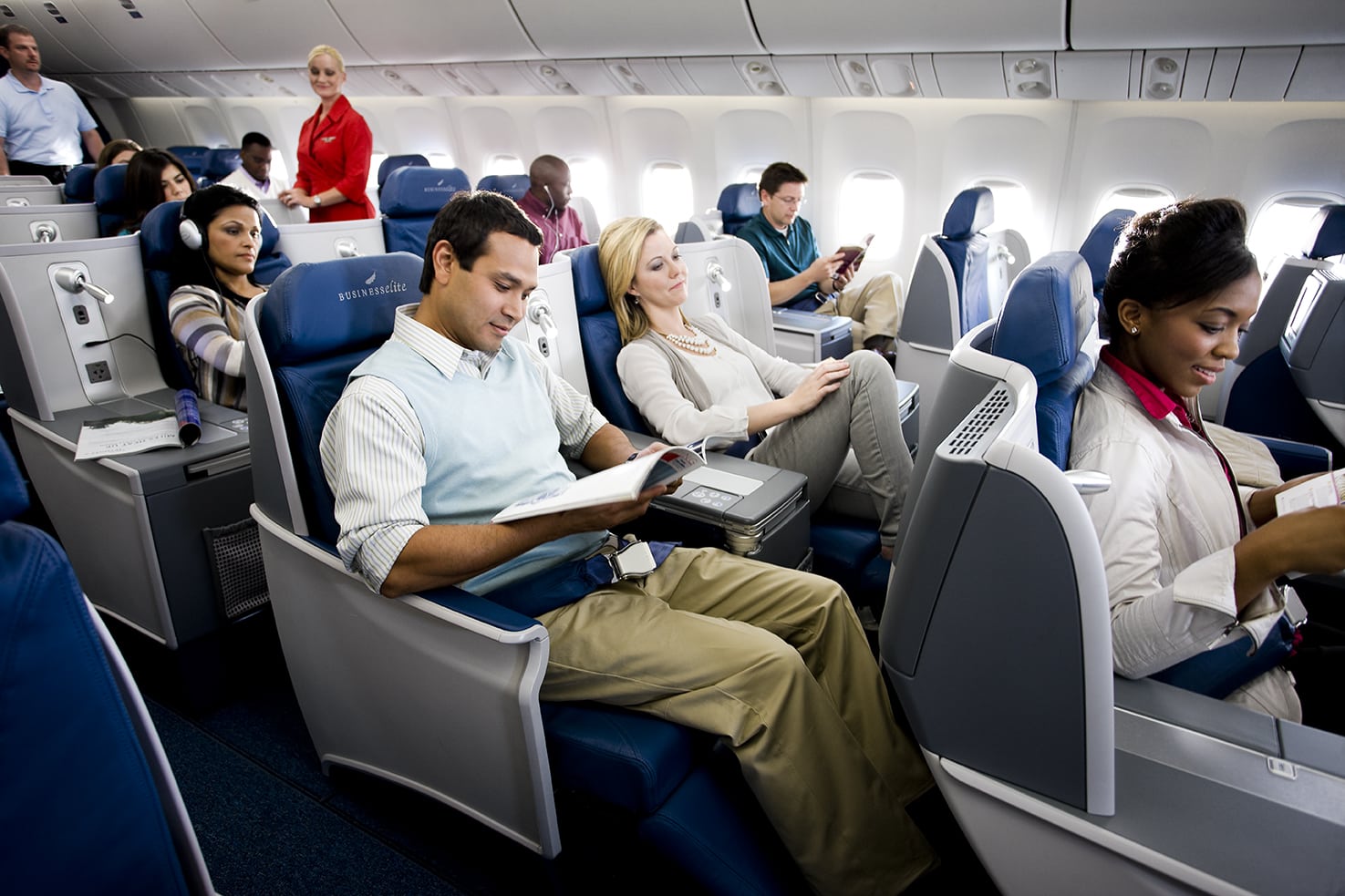Skift Take
Coach travelers are looking forward to the trickle-down effect from business class: Could advances in business mean softer seats and smarter configurations in coach?
Thanks to the plethora of mergers in the airline industry — a bankruptcy judge just last week cleared the marriage of US Airways and American Airlines — things aren’t looking good for the hoi polloi. As a recent Slate article pointed out, the era of cheap airfare is pretty much over, with four major airlines controlling 70% of the U.S. aviation market.
With the economy-class market locked up with fewer service and fare options, the lucrative premium-class customer is getting more marketing attention. That segment, according to a United spokesman, provides a “disproportionate share of total revenue.” At Delta, for example, the top 5% of passengers account for 26% of revenue.
“The consolidation you’re seeing is absolutely placing a premium on the business traveler,” said Jonathan Clarkson, a director of marketing at Southwest Airlines. “It is a high-yield, loyal and extremely knowledgeable traveler.” Corporate-travel demand is also rising: The Global Business Travel Association said it expects spending to rise 4.6% in 2013 to $266.7 billion.
American Airlines VP-Marketing Rob Friedman said its strategy is designed to make it “the airline of choice” for high-value customers, particularly important because the highest 20% of American’s customers generate 70% of its revenue.
So where’s the battleground for the business traveler? In perks.
Greeley Koch, exec director at the Associate of Corporate Travel Executives, said that flat, 180-degree seats are now becoming standard for airlines. Once those are in place, “marketing emphasis is shifting to other service elements.” For example, an express-meal service that lets premium passengers get meals served and cleared quickly, or an option to eat while in the airport lounge.
Marketing these extras is usually done via in-airport advertising or direct-to-consumer communication. Last year, Delta toured a “Cube” around Europe, which let people try out its new flat-bed seat. The airline is also marketing its “Sleep Experience” initiative, which partnered with Westin to provide “Heavenly In-Flight Bedding” — special pillows, comforters, and on some flights, a lumbar-support pillow — to its business-elite passengers.
At TED2013, the airline went futuristic, hosting a talk and demo with sleep scientist Russell Foster, who showed off the “world’s first Photon shower” — a light chamber to help people recover from jet lag. Although just a concept for now, Kristen Manion, managing director-worldwide marketing communication at Delta, says the shower might “be on planes one day, “in the form of goggles,” or more realistically, in airport lounges. Delta is investing $2 billion on enhancing its products and services in 2013 — including putting Malin & Goetz and Tumi goodies in amenity kits.
Last year, United made a $550 million investment on aircraft-interior improvements, and another $50 million to revamp its United Club lounges. Perks include a “turndown” service on United Global First and celebrity-chef-prepared gourmet meals. Turn-down service is also offered on American.
 This story originally appeared on AdAge, a Skift content partner.
This story originally appeared on AdAge, a Skift content partner.
Additional links from AdAge:
The Daily Newsletter
Our daily coverage of the global travel industry. Written by editors and analysts from across Skift’s brands.
Have a confidential tip for Skift? Get in touch
Tags: delta air lines, united airlines
Photo credit: Interior cabin of a Boeing 767 showing Vantage business class seats. Delta Air Lines
